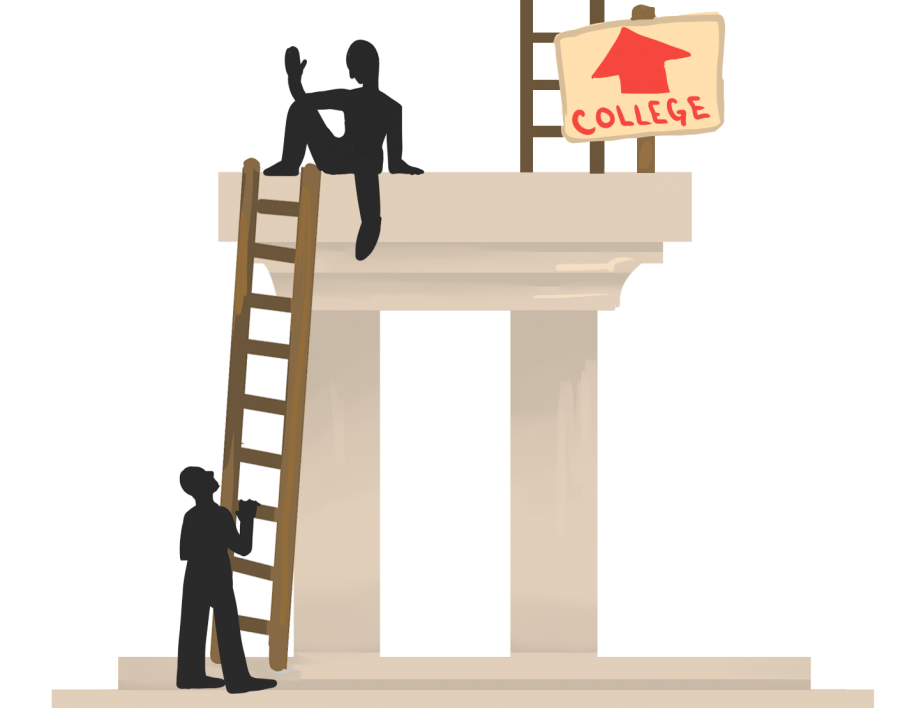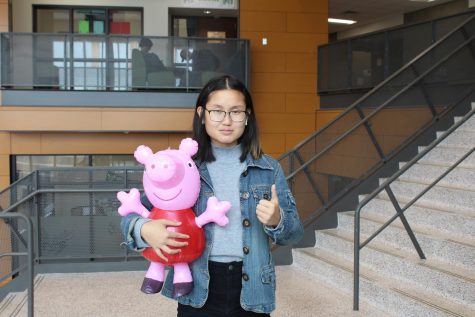Senior slide or freshman focus? EHS seniors and freshmen look back on the semester
March 1, 2020
Every year, around the beginning of second semester, an epidemic of a highly contagious condition begins to spread among Edina High School seniors. Symptoms often include a drop in grades, fewer turned-in assignments, and/or a generally nonchalant attitude toward school. This disease is known as “senior slide”, caused by the impending entry into post-high-school life. Meanwhile, like seniors, freshmen are in the midst of one of the largest transitions of their school life—the move from middle school to high school. Due to changes in class size, academics, expectations, and social groups, the transition can often be confusing for freshmen.
With the end of first semester finals, the completion of college applications, and graduation on the horizon, some seniors start to take school less seriously. They choose to take a breather, hang out with friends, or participate in new extracurricular activities and events. This is a stark difference from seniors who are nervous about the potential of rescinded admissions notices from colleges, and work hard to maintain their GPA. Many, such as senior Bryn Osborne, want to find a balance. “I’m kind of trying to find a happy medium,” Osborne said. In the comingfall, she hopes to pursue a degree in political science or international relations. “I’m trying to give myself a little more wiggle room on homework assignments and just kind of trying to enjoy every last bit of my senior semester. I really want to make sure I participate in every fun activity that we do—going to the dances, hockey games, and things like that.”
While senior slide isn’t always intentional, it affects many students in some capacity. “I think you just get tired, and things feel like they don’t matter as much,” senior Olivia Pierce said. “I have to focus a lot harder on doing my homework.” After high school, Pierce plans to pursue a degree in nursing and eventually become a pediatric nurse practitioner. To avoid the worst of senior slide, both Pierce and Osborne are keeping themselves on track by taking AP classes. Because the AP exams in May can earn seniors college credit or scholarships, both of which can cut down on college costs, AP students must continue to study hard if they want to earn a qualifying score.
Both Pierce and fellow senior Hendrik Grzybowski agree that, while continuing to work hard is important, it’s also alright to relax. “This year I’ve had a little more time to be able to focus on myself and explore what I find interesting and do some self-learning and personalized learning,” Grzybowski, who plans to study fine arts at the University of Puget Sound, said. Pierce, an avid singer and musician, also plans to participate more in extracurriculars this semester, including auditioning for the spring musical “Into the Woods”.
With college, trade school, and jobs pulling friend groups across the country, senior slide can also take a toll on social lives. “I feel like there’s a kind of social senior slide where you don’t really put as much time into your friendships because you know that you probably won’t see these people again after you graduate,” Pierce said. “I’m trying to invest in the friendships I have because I feel like you should make the most of them before you leave.”
On the other end, EHS freshmen are continuing to adjust to the differences that come with the entry into high school.
Academics make up some of the largest changes. With a larger course load and often more challenging courses, it can take time for new students to adjust. “You get a lot more work, [and] everything counts. Formative is a lot more important than [it was] in middle school,” freshman Clara Duray said.
Other grading policies also change. For example, while a middle school teacher might allow retakes for full credit, high school teachers rarely allow retakes to earn above a passing grade. English essays also often pose a challenge for many freshmen, with the format and criteria for Pre-AP English 9 analysis essays differing significantly from English 8. “I did expect the teachers to be a bit harsher with grading,” freshman Lucy Keepper said. “And that was true, but not too bad.”
The size change that comes along with entering high school can also affect social dynamics. Once in high school, friend groups often change based on lunches, classes, and extracurricular activities, which provides opportunities to branch out. “I still have all my friends that I did last year,” freshman Alper Guevenen said. “And then I made some new friends from South View and even other grades up.”
Looking forward, many freshmen said that they’d like to take better advantage of teacher office hours. Meanwhile, Guevenen and fellow freshman Peyton McKeehen hope to make varsity-level Ultimate Frisbee and volleyball, respectively. Others hope to eventually win admission to their dream college. So although the move into high school can be shocking, it provides numerous opportunities, both social and academic.
As both grades face major transitions, they deal with different challenges. While seniors look forward to graduation, freshmen adjust after their first semester in high school.
After being asked for advice they would give their younger selves, all three seniors – Pierce, Grzybowski, and Osborne – recommended that they work hard but also allow mistakes and embrace the high school experience. “Just enjoy everything; not everything has to be about grades all the time,” Osborne said. “High school is four years of your life that you’ll never get back, so make sure you’re living every moment to your ultimate potential.”




